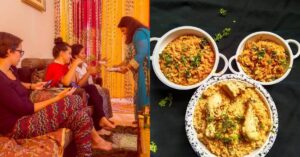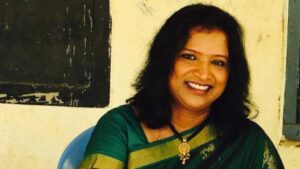Kolkata’s Iconic Parsi Joint ‘Mancherji’s’ Was Born in This Bengali Woman’s Kitchen
Love the Parsi food at Kolkata's iconic restaurant Mancherji's? Supriya Mancherji shares the beautiful love story that laid the foundation of this business in her home kitchen.
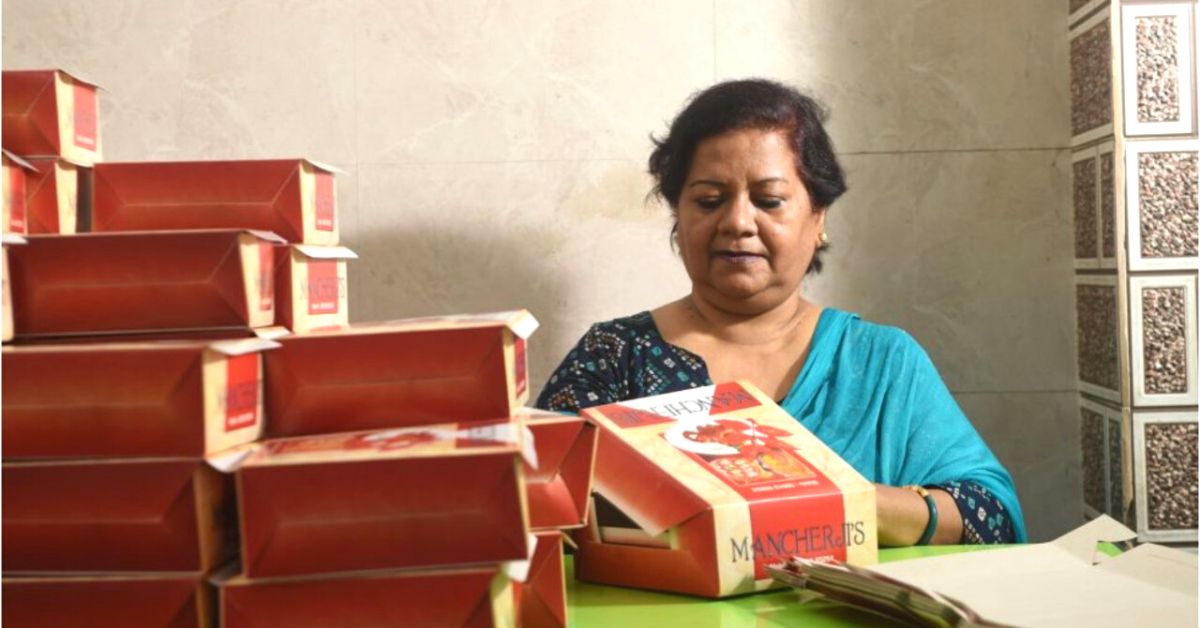
Think Kolkata food and the taste buds long for luchi-alur dum, macher jhol, shukto and mouth-watering sweets. While these dishes are widely available, Parsi food like Patra ni machhi, dhanshak, berry pulao, and lagan nu custard are not dishes that one would associate with Kolkata.
And yet, Supriya Mancherji, (58) owner of the restaurant Mancherji’s in Kolkata, has been successfully running a Parsi cuisine restaurant in the city she grew up in.
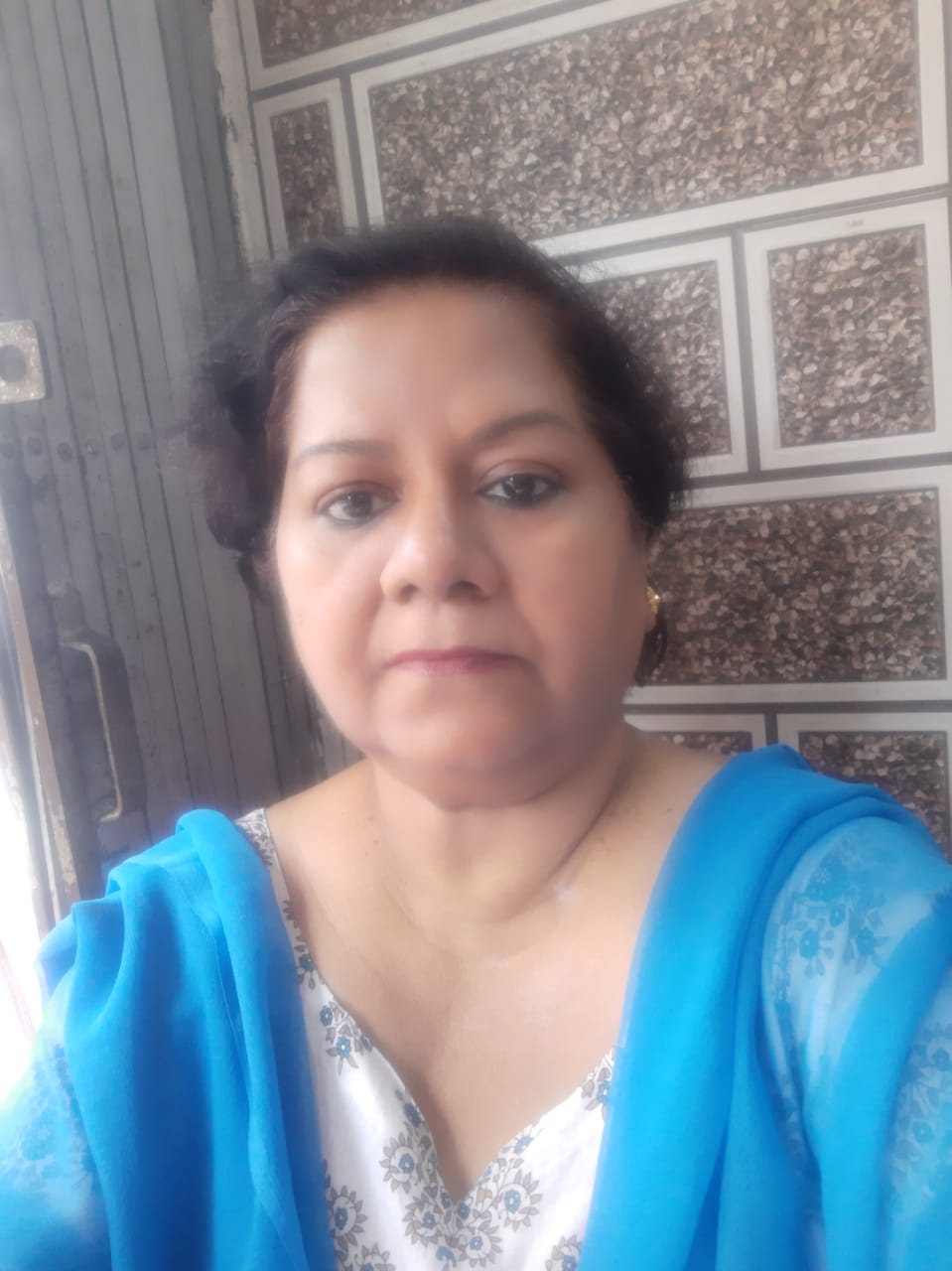
Situated in Kolkata’s Kyd street, Mancherji’s is a small, no-frills set-up, which serves good food rather than investing in making the ambience look a certain way. Speaking to The Better India, she says, “The food I serve is what people come here for and not for how the place looks.”
Mancherji’s by virtue of being located in a business hub of the city attracts office-goers and foreign tourists who come looking to get a taste of different and unique cuisine. The story of how it all began goes back to when Supriya, then known as Supriya Dattagupta, got married to her husband, Manchi Mancherji’s in 1997.
‘I stumbled upon a Parsi husband and the cuisine.’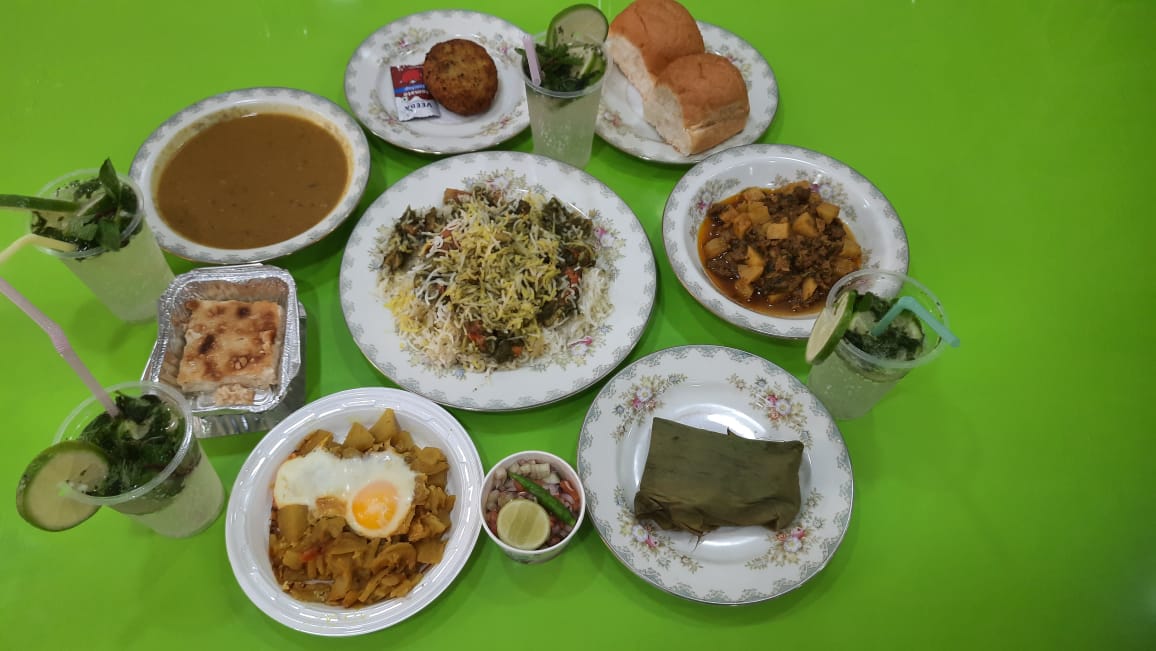
“They say marriages are made in heaven and perhaps there is some truth to that,” says Supriya. She continues, “My mother was looking to get me married to a Bengali boy but my cousin who was friends with Manchi suggested his alliance and made a very strong case for it as well. Once my mother agreed and we met, there was no question in my mind about it.”
He recalls the initial courtship months and says that it was a “beautiful” time. “He would come to visit me at my workplace and we slowly got to know each other. It was an arranged marriage but one where we found love,” she says with a smile.
Supriya grew up in a middle-class Bengali family and until she was married, she had no brush with Parsis or their food. “I was enjoying my job as a secretary in a private firm. I always was entrepreneurial and tried my hands at various things, which included doll making,” she says.
After marriage, Supriya continued to work and recalls her lunch box being devoured by all her colleagues. “I had the good fortune of marrying into a family where my mother-in-law was a fantastic cook,” she says.
Hilla Mancherji, Supriya’s mother-in-law was the one who introduced her to the world of Parsi cuisine and even cooking in general.
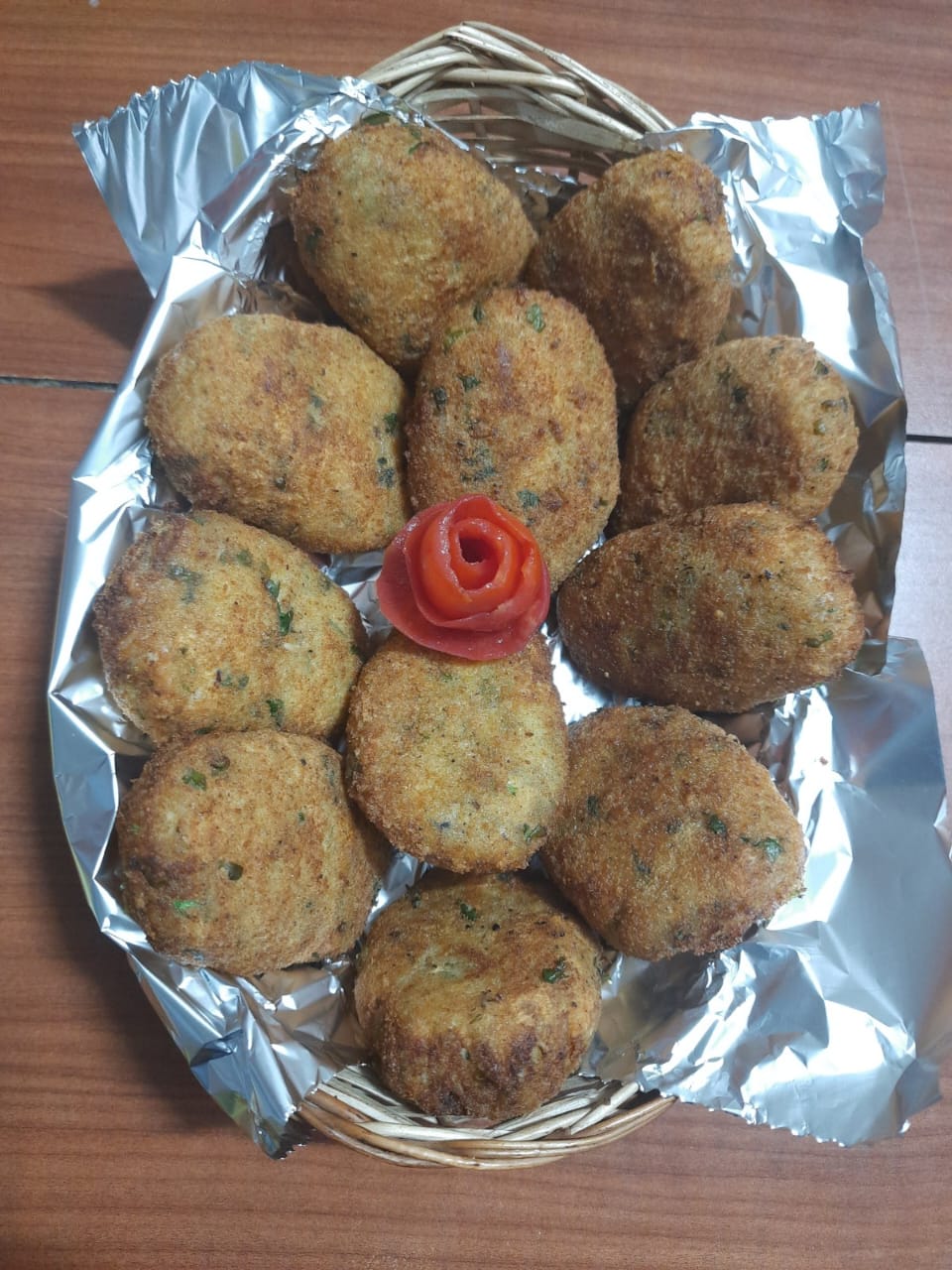
“Until then I had no real interest in cooking. I did it as a chore,” says Supriya.
She describes her mother-in-law as a very elegant and well-put-together lady. “She would lovingly make the food and pack it for me every day. The idea of doing this as business struck me then.” Her keen business acumen, and her ability to rustle up fabulous meals and treat each customer with so much affection were things that Supriya tried to imbibe from her mother-in-law.
“I owe everything to her,” she says. In fact, not just her mother-in-law but she also attributes her success to her sister-in-law Shernaz Mancherji, who even now and then very meticulously sends her ingredients which are not easily available in Kolkata from Mumbai. “They always come packed with so much love and affection,” she adds.
Taking Parsi cuisine beyond the community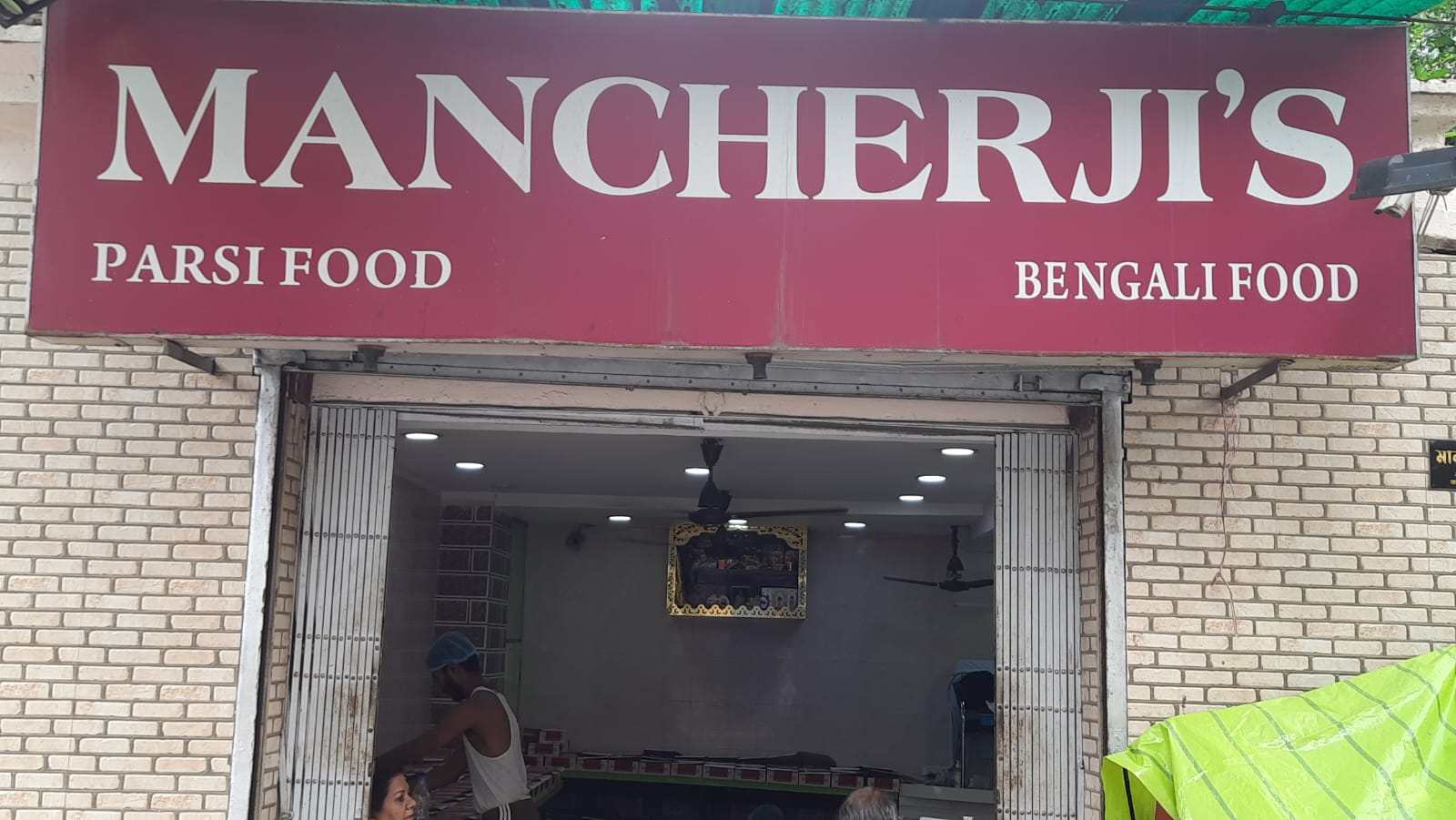
In the beginning, the small catering business that Hilla was running was from her home kitchen. It was being done to satiate the cravings that fellow Parsis in Kolkata had. However, slowly word spread and people from other communities also started asking for food delivery.
Supriya took small steps in establishing the business. “It all started at home, first we delivered to Parsi households, slowly moved to supply food to office goers and then decided to move into a larger space and feed many more,” she adds.
But despite having cooked for so many years now, Supriya says that the taste that her mother-in-law managed to get is something she has not yet managed. “I was in awe of her. She was so quick in the kitchen. Knew exactly how much spice should go into what dish and never had to measure anything,” she recalls. Until her last breath in her 90s Hilla continued to be active and alert. “She was such an inspiration. I do not have even 1/3rd the energy that she had all through her life,” says Supriya.
Hilla also brought a lot of innovation to the traditional Parsi cuisine, which became instant hits. “Dishes like ‘baked Hilsa’ (also known as Ilisha by Bengali’s is a fish that is popular for its soft meat) with a Parsi chutney was her signature dish, which is a big hit even today,” she says. Besides this, mutton dhansak, keema patties, chicken berry pulao, salli chicken and akoori are liked by customers.
From a home kitchen to establishing a restaurant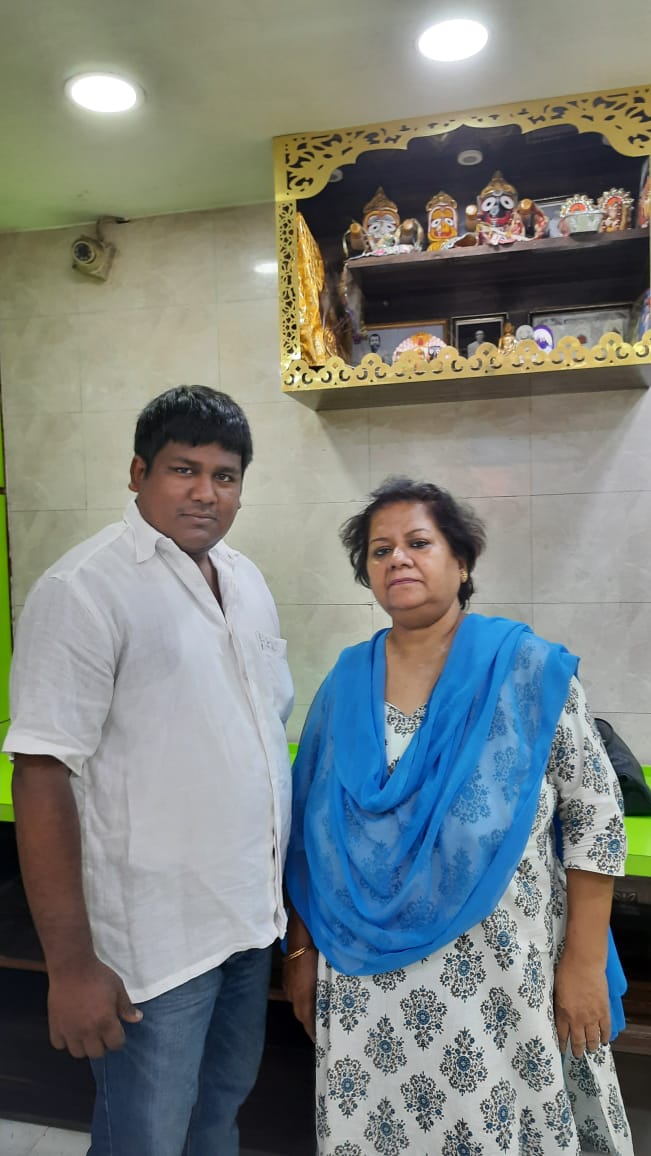
Supriya says that she put in all the money that she had saved up from her job as a secretary to establish Mancherji’s in 2005. “With no business expertise to back me up early on I just relied on my own money and some of what I managed to get from close family and friends who were encouraging me,” she says. Subsequently, when the business picked up she applied for a bank loan.
Until 2019, Supriya says that the business was going well and it would make a revenue of a few crores annually. “However, COVID-19 changed it all. It now feels like we are starting from the beginning,” she says. Supriya and her team at the restaurant however are confident of getting back on track soon.
Amar Gayen (33), one of the staff members at the restaurant is described by Supriya as her ‘right-hand boy.’ He started working at Mancherji’s 13 years ago as a helper and today manages the operations of the entire restaurant.
He says, “I have grown with this restaurant. I started working as a food packaging help boy and would draw a salary of Rs 1,700. Today, I have been promoted to manager. I now manage all deliveries, orders, and others who work here.”
He says he learnt about Parsi cuisine and the culture with each order that was delivered and with each new customer he spoke to.
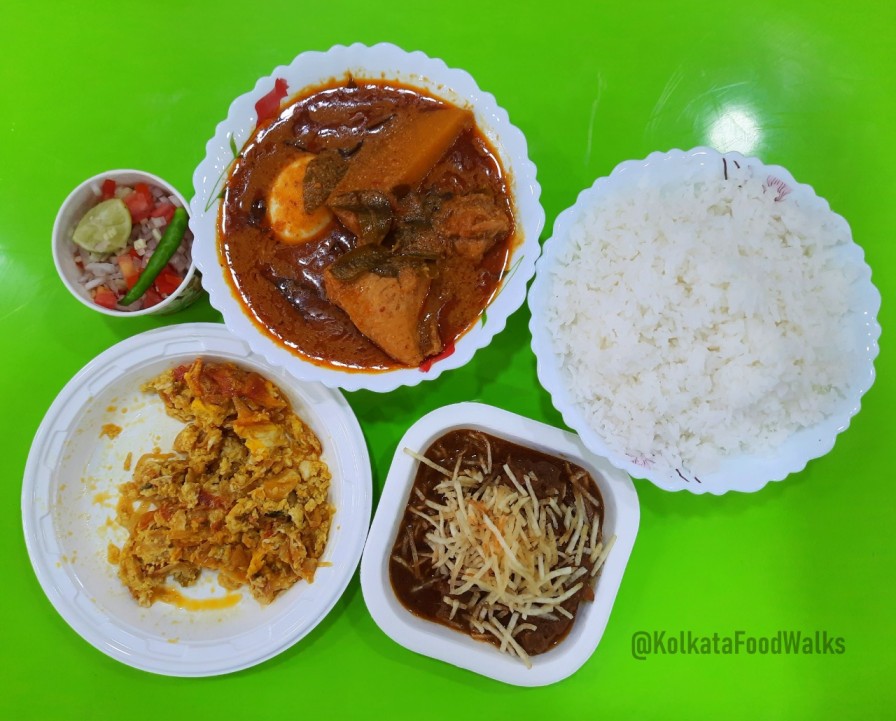
“I have also had some experience of being in the kitchen so sometimes when we are short staffed I also cook and help out in the kitchen,” he adds.
Having lost her husband three years ago, Supriya is now a single parent to a daughter who is pursuing a degree in law from Bengaluru.
As we near the end of our discussion, she says in a very welcoming tone, “I’d love for everyone who reads this article to come and try our Parsi food at Mancherji‘s sometime in their life.”
(Edited by Yoshita Rao)
This story made me
- 97
- 121
- 89
- 167
Tell Us More
We bring stories straight from the heart of India, to inspire millions and create a wave of impact. Our positive movement is growing bigger everyday, and we would love for you to join it.
Please contribute whatever you can, every little penny helps our team in bringing you more stories that support dreams and spread hope.






